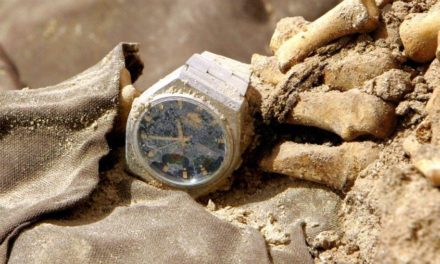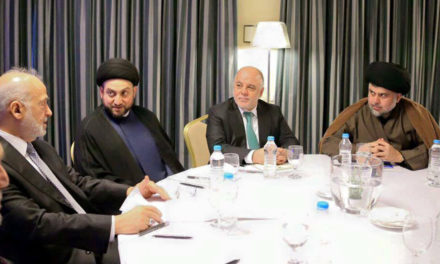A 1,200 kilometer transport route that will connect the Persian Gulf to Turkey via Iraq through road, rail, and ports is being described by Turkish President Recep Tayyip Erdogan as the “New Silk Road”. The Development Road project by Iraq is ultimately trying to challenge the Suez Canal for shipping from Asia to Europe. With the recent disruptions to the passage of goods through the Red Sea, politicians in both countries hope that the Iraqi-Turkish economic corridor will become a viable alternative. To do that, Baghdad and Ankara must first overcome political disagreements, water rights disputes, and security issues that threaten to spoil the proposed Development Road project that could be worth tens of billions of dollars annually.
When completed, the Development Road will shorten the travel time between Asia and Europe. In late March, Prime Minister Mohammed Al-Sudani met with President Erdogan in Ankara. The meeting lasted several hours, but in the end, Erdogan announced that work would begin on the Development Road project. With Turkey on board, the Iraqi government has sought to involve other regional players in the project, primarily to attract investment and funding, but also to create common economic interests and strengthen relations as a buffer against potential conflicts.
This project has huge economic potential for Iraq in job creation, developing the country’s transport infrastructure, and providing materials that are imported from abroad. Not to mention the direct financial returns through fees and taxes. According to the economist Ahmed Al-Rawi: “The Development Road represents an ambitious vision if there is seriousness in its implementation, and it will have a practical role in developing the country’s infrastructure in the field of transportation and providing great job opportunities of up to 250,000 jobs when the project is completed”. Part of the Development Road project is creating a “dry canal” in southern Iraq, that will connect the Faw Grand Port to Umm Qasr Port through immersed tunnels. This will save two weeks of time, compared to shipping through the Suez Canal.
A project of such scale, especially in Iraq, is bound to face challenges in its implementation. Since the Development Road is dependent on completion of the Faw Grand Port, the first hurdle has been the lack of funding. Until now, only five berths have been constructed, out of 99 that have been planned. If funding continues at this weak level, the Grand Faw Port will take more than twenty years to complete. As for the regional challenges, Kuwait’s nearby Mubarak Port, which is under construction, aims to divert shipping traffic towards Kuwait. Anticipating that Mubarak Port will be operational before the Faw Grand Port, Kuwait has sought to convince the Iraqi government to link Mubarak Port to the Development Road via a railway connection. This could severely undermine the Faw Grand Port given that Kuwait would have much more control over shipping lanes and reduce Iraq’s economic benefits in the Development Road.
Further afield, India is engaged in planning a new economic corridor with Saudi Arabia and the United Arab Emirates, which would see goods moved across land through Israel into the Mediterranean, bypassing the Red Sea. This project would also challenge the Development Road project, which is why Iraq needs to speed up implementation of the Faw Grand Port. The United States is keen to integrate Israel into the economies of the Gulf states which is why any economic corridor that does so will receive its backing, at the expense of Iraq and Turkey in this case.
Iraq must find ways to make its trade route more attractive than others. This could be done by making commerce in Iraq easier by opening up free trade zones and making the movement of goods to Europe from Asia through Iraq seamless, cheaper, and faster. Iraq has a growing population which makes it a valuable market. Several sectors are underdeveloped which is why the government should encourage private sector growth by opening up financing through the cutting of red tape. In this way, Iraqi businesses can also benefit from a larger market because of the Development Road.
Iraq needs to gradually move away from relying on oil exports for its economy, and the Development Road is one of many projects needed to do so. The vital component of that is the Faw Grand Port, which is why the Iraqi government should not allow overtures or competition from Kuwait or India to undermine it. In addition to speeding up work on the Development Road, one thing that is clear is that relying on oil production for the long-term future is definitely the wrong choice, which is why other countries are already moving away from that, and hopefully Iraq joins them.
This essay is part of a special series – Empowering Change in Iraq: Policy Recommendations for a New Era

Ali Yusif
Ali Yusif is an economist by training and an analyst of public finances. He is a PhD candidate with a focus in financial markets.










